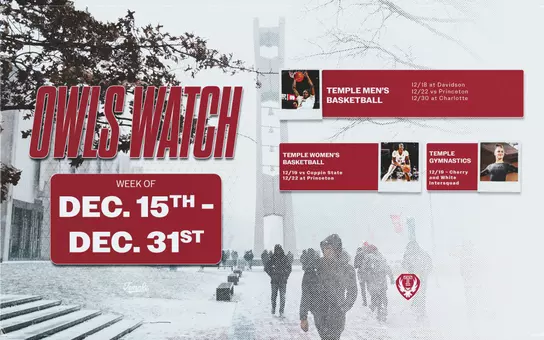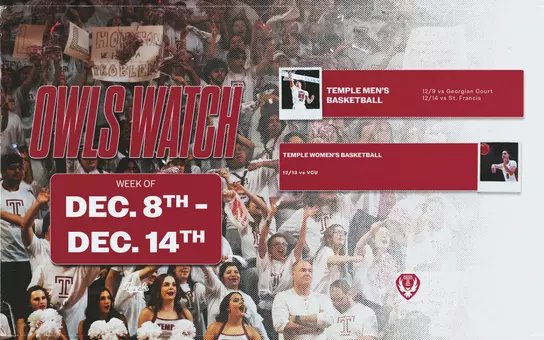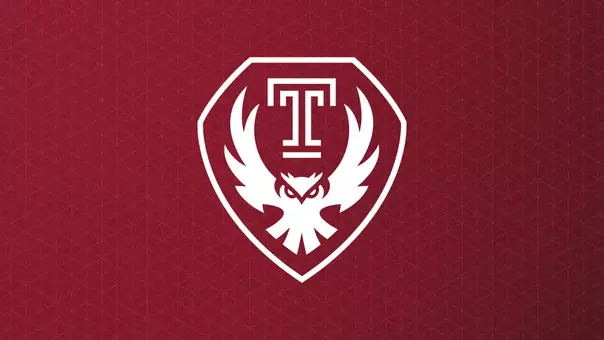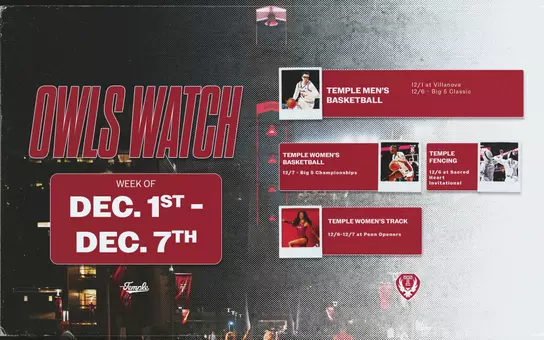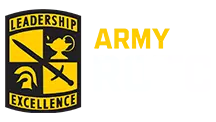Temple University Athletics
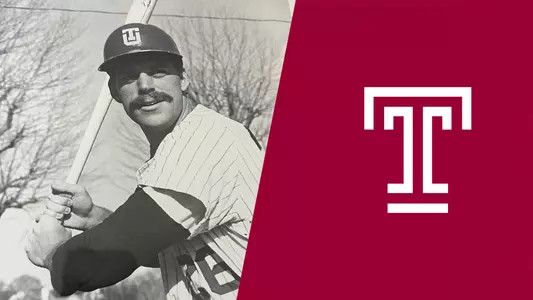
Alumni Spotlight: Earle Chew
8.23.23 | General
This is the second in a series of spotlights on Temple Athletics alumni. The series will start with the 2023 Athletics Hall of Fame Class, which will be inducted the weekend of October 6-7.
One of the best baseball players in Temple history, Earle Chew was one of the Owls' top players in the best era for the sport at the University. A three-time Middle Atlantic Conference (MAC) all-league selection, Chew was named the conference's Most Valuable Player in 1972 when he led the Owls to a third-place finish at the College World Series.
One of the program's top offensive players, the Temple outfielder led the team in home runs in 1972 and 1973 and RBI in 1972. Team captain in 1973, he ended his career fourth all-time in program history in steals with 55. Selected in the third round of the 1973 Major League Baseball draft by the Chicago Cubs, Chew played four seasons in the organization's minor league system.
Talk about why you chose Temple.
"I played basketball and baseball in high school. I loved those sports, basketball being my favorite, and I received a full scholarship to come to Temple to play both sports. My high school coach, Cliff Crispin, had played baseball with (Temple baseball coach) Skip Wilson and played basketball for (Temple men's basketball coach) Harry Litwack. So, he talked to both of them and told them about me which is how I was offered a full scholarship. That is what led me to Temple.
After my sophomore year, Harry Litwack said to stick with baseball (laughing). I was 6-4 and played both guard and forward in high school, but at Temple I was too short to be a forward and too slow to be a guard and I couldn't jump so to me that was the logical choice. So, when they said stick with baseball that is what I did."
You had an amazing baseball career for the Owls, earning all-league and conference MVP honors. When you look back, what stands out the most from your time at Temple?
"I went to the Little League World Series in Williamsport when I was 11 and went to the VFW World Series in Hershey, Pa. when I was a teenager, and then with Temple I went to the College World Series and that was really unique.
Philadelphia was the first big city I had been in. I learned to drive when I came to Temple because of the traffic. My time with basketball was unbelievable because we got to travel. We played as a team. When I went to baseball it was not the same because it was not as active, but my teammates made it fun as they were there for the same reason I was – to win – which made it great.
Skippy Wilson was the head coach, and he was an incredible motivator. He is the best coach I ever had. He was my freshman basketball coach and my varsity baseball coach for three years."
Following Temple, you were a third-round draft pick by the Chicago Cubs. Talk about your experience as a professional baseball player.
"It was completely different than playing in high school and college. Everyone was worried about their batting average, their errors, their earned run average, how well they played, etc. The atmosphere of winning was gone. It wasn't fun anymore. It brought me down. It got to the point where I did not really care as much about playing anymore.
I played for four years, and it was ok. I met a lot of people like Ernie Banks, Pete Reeser, and others in the coaching ranks and players, and a lot of the players I played with in the minor leagues went on to play in the majors. I roomed with Bruce Sutter, when they brought me up to AA he was my roommate. He was a great guy."
What has kept you busy since your playing career ended?
"I ended up in Midland, Texas. We had to get a job in the offseason and the last two years I played ball I was in Midland. I went to work for Halliburton, working in the oil fields. When I was released from baseball, and since I had a college degree, I was on 24-hour call and that was getting old. So, my wife, Nancy, sent me down to Houston to start looking for a job. The qualifications were to have oil field experience and a college degree, so I got a job with Nalco. They said they had two places they could send me Gillette, Wyo. or Wichita, Kansas. My wife and I decided on Gillette, but when I called them back with my decision they said, 'Sorry, we just filled that one. You are going to Wichita.' I ended up working for Nalco up until I retired in 2014."
Finally, your 1972 World Series team celebrated its 50th reunion last year. How special was that time for you and your teammates?
"It was unbelievable. The bad part was some of the guys had changed (through time) and I did not recognize them. I was so embarrassed; I could not take it. I had to ask who some of them were and they had to laugh. But it was great being at the reunion and meeting all the guys."
One of the best baseball players in Temple history, Earle Chew was one of the Owls' top players in the best era for the sport at the University. A three-time Middle Atlantic Conference (MAC) all-league selection, Chew was named the conference's Most Valuable Player in 1972 when he led the Owls to a third-place finish at the College World Series.
One of the program's top offensive players, the Temple outfielder led the team in home runs in 1972 and 1973 and RBI in 1972. Team captain in 1973, he ended his career fourth all-time in program history in steals with 55. Selected in the third round of the 1973 Major League Baseball draft by the Chicago Cubs, Chew played four seasons in the organization's minor league system.
Talk about why you chose Temple.
"I played basketball and baseball in high school. I loved those sports, basketball being my favorite, and I received a full scholarship to come to Temple to play both sports. My high school coach, Cliff Crispin, had played baseball with (Temple baseball coach) Skip Wilson and played basketball for (Temple men's basketball coach) Harry Litwack. So, he talked to both of them and told them about me which is how I was offered a full scholarship. That is what led me to Temple.
After my sophomore year, Harry Litwack said to stick with baseball (laughing). I was 6-4 and played both guard and forward in high school, but at Temple I was too short to be a forward and too slow to be a guard and I couldn't jump so to me that was the logical choice. So, when they said stick with baseball that is what I did."
You had an amazing baseball career for the Owls, earning all-league and conference MVP honors. When you look back, what stands out the most from your time at Temple?
"I went to the Little League World Series in Williamsport when I was 11 and went to the VFW World Series in Hershey, Pa. when I was a teenager, and then with Temple I went to the College World Series and that was really unique.
Philadelphia was the first big city I had been in. I learned to drive when I came to Temple because of the traffic. My time with basketball was unbelievable because we got to travel. We played as a team. When I went to baseball it was not the same because it was not as active, but my teammates made it fun as they were there for the same reason I was – to win – which made it great.
Skippy Wilson was the head coach, and he was an incredible motivator. He is the best coach I ever had. He was my freshman basketball coach and my varsity baseball coach for three years."
Following Temple, you were a third-round draft pick by the Chicago Cubs. Talk about your experience as a professional baseball player.
"It was completely different than playing in high school and college. Everyone was worried about their batting average, their errors, their earned run average, how well they played, etc. The atmosphere of winning was gone. It wasn't fun anymore. It brought me down. It got to the point where I did not really care as much about playing anymore.
I played for four years, and it was ok. I met a lot of people like Ernie Banks, Pete Reeser, and others in the coaching ranks and players, and a lot of the players I played with in the minor leagues went on to play in the majors. I roomed with Bruce Sutter, when they brought me up to AA he was my roommate. He was a great guy."
What has kept you busy since your playing career ended?
"I ended up in Midland, Texas. We had to get a job in the offseason and the last two years I played ball I was in Midland. I went to work for Halliburton, working in the oil fields. When I was released from baseball, and since I had a college degree, I was on 24-hour call and that was getting old. So, my wife, Nancy, sent me down to Houston to start looking for a job. The qualifications were to have oil field experience and a college degree, so I got a job with Nalco. They said they had two places they could send me Gillette, Wyo. or Wichita, Kansas. My wife and I decided on Gillette, but when I called them back with my decision they said, 'Sorry, we just filled that one. You are going to Wichita.' I ended up working for Nalco up until I retired in 2014."
Finally, your 1972 World Series team celebrated its 50th reunion last year. How special was that time for you and your teammates?
"It was unbelievable. The bad part was some of the guys had changed (through time) and I did not recognize them. I was so embarrassed; I could not take it. I had to ask who some of them were and they had to laugh. But it was great being at the reunion and meeting all the guys."
Ep. 29: Last Episode of First Semester from David & Amelia
Wednesday, December 17
MBB Press Conference vs. Saint Francis (Adam Fisher)
Sunday, December 14
MBB Press Conference vs. Saint Francis (Derrian Ford & Gavin Griffiths)
Sunday, December 14
Ep. 28: Vice President/Debbie & Stanley Lefkowitz '65 Director of Athletics Arthur Johnson
Friday, December 12


